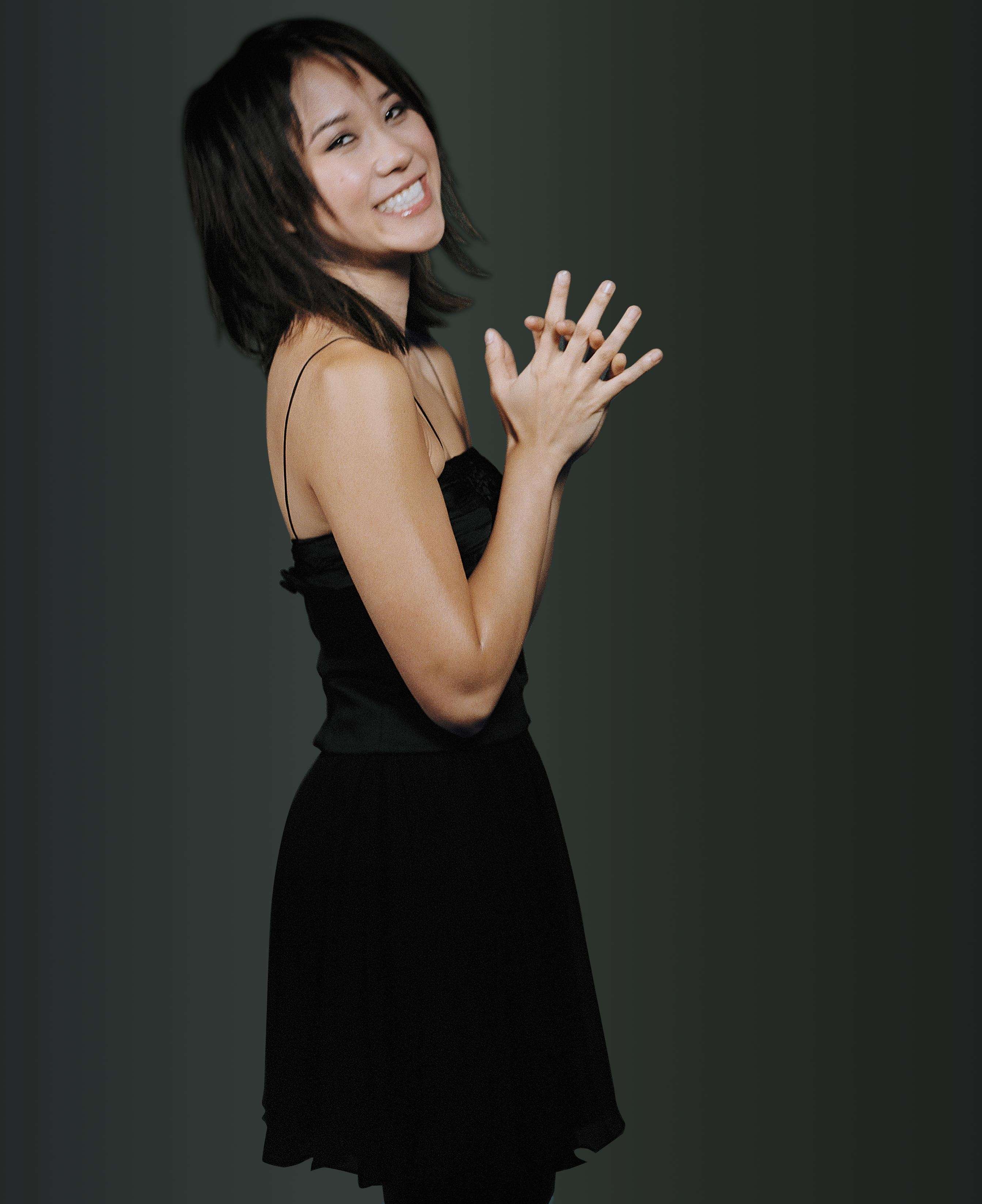|
Back
Dazzling debut for Yuja Wang Toronto
Roy Thomson Hall
06/09/2011 - and June 11, 2011
Maurice Ravel: Alborada del gracioso
Sergei Rachmaninoff: Piano Concerto No. 3, Op. 30 – Cinq Etudes-Tableaux: “La Mer et les Mouettes”, Op. 39 No. 2 (orchestration Ottorino Respighi)
Claude Debussy: La Mer
Yuja Wang (Piano)
Toronto Symphony Orchestra, Peter Oundjian (Conductor)

Y. Wang (Courtesy of the TSO)
The TSO has devised a series of concerts featuring ever-popular Rachmaninoff piano works and contemporaneous French pieces to entice local music lovers into the concert hall even when the weather turns beguiling. Judging from the large, buzzing audience that came out for this concert, this programming seems to work.
The concert opened with Ravel’s orchestrated version of his Alborada del gracioso (which translates as “The Jester’s Morning Love Serenade”). Its precise (in this case Spanish) rhythms and contrasting moments of intimacy and brashness gave a foretaste of what was to come. (Special kudos to the orchestra’s lead bassoonist, Michael Sweeney, by the way.)
The main work on the program (and just what a main work it turned out to be!) was Sergei Rachmaninoff’s epic Piano Concerto No. 3, with the phenomenal Yuja Wang making her TSO debut. She displays not only a virtuosic approach when required but also liquid delicacy during appropriate passages. There were moments when Ms Wang seemed to be tugging the tempos forward, but piano/orchestra balance was always just fine. A year ago at Koerner Hall she performed a daunting recital featuring Schumann, Scriabin, Prokofiev, and Schubert transcribed by Liszt. My overall impression then was of a steely determination to deliver every note and nuance – which is exactly what she did with the Rachmaninoff. The piece probably always gets a standing ovation, as it did here – and deservedly on this occasion.
Peter Oundjian opened the second half of the concert with an admonishment for us to readjust our musical palate for something distinctly contrasting – wise advice. The next piece turned out to be quite a rarity, Ottorino Respighi’s orchestration of a solo piano piece, “La Mer et les Mouettes” (The Sea and the Seagulls), from Rachmaninoff’s Etudes-Tableaux, Op. 39 (No. 2 to be exact). At the behest of Serge Koussevitsky the Italian composer created an orchestral suite called Cinq Etudes-Tableaux, and this moody, understated piece is the first of its five sections. Its mood of yearning and loneliness is reminiscent of the second movement of the preceding concerto, but after the rambustious finale of that work this piece had a difficult time maintaining audience interest. (The full five-movement work doesn’t seem to have been much of a success at its 1931 premiere or later. Rachmaninoff himself snubbed it.)
Debussy’s La Mer is one of the French composer’s established key works. The TSO’s performance – relaxed at times, headlong at others – displayed the ensemble’s (and Maestro Oundjian’s) many virtues. It built to an appropriately tempestuous climax.
I can’t help notice that the Saturday performance of this program ends with the Rachmaninoff, an arrangement that avoids making a great work like La Mer appear an anti-climax.
I discern a didactic reason for programming the two French works with the Rachmaninoff 3rd in that it undercuts the widespread attitude that Rachmaninoff exemplifies an old-fashioned, four-square grandiosity while Debussy and Ravel exemplify a more modern, evanescent understatement. Whether consciously influenced by the French composers or not, the Russian’s orchestration has a distinct kinship with the supposed polar opposites.
Michael Johnson
|